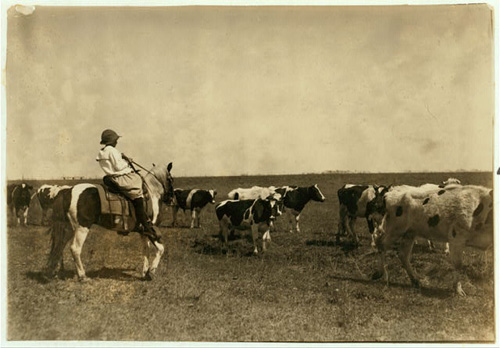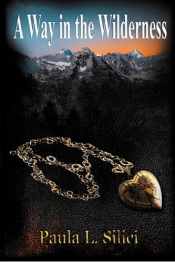By Paula L. Silici
Forging "A Way in the Wilderness"
One evening over dinner, a good friend (I’ll call him Allen) began to talk about an encounter he’d had with a prostitute while serving in Vietnam.
He’d seen some horrendous images on the battlefield, and one night he felt an overwhelming need to talk about his feelings to someone other than his buddies. So, he hired a girl from one of the local bars to do nothing more than keep him company—not have sex, just listen to him for several hours as he unburdened his soul.
I found Allen’s account so moving that the spark of a story began to take shape in my imagination. What if, earlier in America’s history, in much the same way as Allen had sought comfort from his Asian companion, a young and handsome cattle drover with a tragic past sought emotional comfort from a prostitute? Who, exactly, might that girl be? What set of misfortunes had led her to her current circumstances?
I couldn’t rest until I’d explored the answers—by writing a novel.
From my earliest memory, reading an engaging story or novel has been a means of escape from loneliness, everyday family trials, and life’s myriad disappointments. Whenever I immerse myself in a compelling read, my present reality melts away. The same holds true when I write my own stories.
When I began to work on A Way in The Wilderness, I was suffering through some difficult circumstances myself. Without documenting the grim details here, suffice it to say that delving into the dilemmas of my heroine and hero, Meg and Nathan, served as an effective method of escape from the reality of my own troubles. I hoped that the novel taking shape beneath my fingers would transport my readers out of their harsh realities as well.
After I’d settled on writing a historical novel that would provide a pleasurable diversion for readers, it was easy to decide it would be a romance and to set it west of the Mississippi in the 1860s. My lifelong affinity with Old West lore made researching it a pleasure. Moreover, the book’s settings took me far away from my own contemporary surroundings.
One of the basic rules of romance dictates that the story must have a happy ending. No exceptions. Romance readers understand and count on the fact that no matter how difficult or tragic the hero and heroine’s plight may become, the story will end “happily ever after.” In my own crazy way, I was telling the Cosmos that in my personal world, I also would stand for nothing less than happily ever after. (Since I haven’t yet come to the end of my own story, I can’t say if the Cosmos was listening or not.)
Deciding to write genre fiction meant I was taking a truly delicious risk. In the literary world, genre fiction—and romance in particular—can carry a stigma that I have always rebelled against. Wilderness gave me the opportunity to discard the last of my own residual highbrow inclinations and simply write a compelling story. This approach liberated me on a level I’d never experienced before, allowing me to heave both critic and editor off my shoulders and write with abandon for the sheer, unadulterated pleasure of it.
Historical accuracy was important to me, so I spent countless hours doing research at the Denver Public Library, on the Internet, and in travels to the book’s various locations. I pored over books, articles, and pamphlets that described cattle drives, brothel life, indigenous Native American tribes and their lifestyles, railroad usage and timetables, buffalo herd habits, Kansas and Colorado geography, male and female garments, and pioneer trail food recipes.
While doing research for the character of Dr. Elliot, a frontier physician, I even interviewed a Colorado State University master gardener to inquire about medicinal native plants and herbs. And at every turn, my respect for our pioneer ancestors’ resourcefulness, determination, and fortitude intensified—a bonus I didn’t anticipate.
I especially enjoyed researching speech, slang, and vernacular in use during the 1800s. My character Rhodessa Tumble, a former house slave who’d been taught to read and write, encourages her illiterate husband Moses to widen his vocabulary. Each day, Rhodessa suggests a new word that Moses must learn and use in a complete sentence three times before the sun goes down. Because authenticity was key, and because I never wanted to pull the reader out of the story by using a term incongruous to the time period, I frequently consulted a dictionary of etymology to determine the date a particular word entered the English language.
 Though I regret it now, I opted not to include some of the funnier, but now obsolete, words I discovered. For instance, the word absquatulate meant “to disappear”—as in “You gonna absquatulate with all that loot, Mister?” Another is exfluncticate, which meant “to utterly destroy”: “If you don’t quit it, I’m gonna exfluncticate you.” The raucous clatter these words produce while tumbling off the tongue still makes me laugh, and though my family responds with groans and eye rolls, I try to use each word in a complete sentence three times daily—just as Moses did.
Though I regret it now, I opted not to include some of the funnier, but now obsolete, words I discovered. For instance, the word absquatulate meant “to disappear”—as in “You gonna absquatulate with all that loot, Mister?” Another is exfluncticate, which meant “to utterly destroy”: “If you don’t quit it, I’m gonna exfluncticate you.” The raucous clatter these words produce while tumbling off the tongue still makes me laugh, and though my family responds with groans and eye rolls, I try to use each word in a complete sentence three times daily—just as Moses did.
As each character began to take shape, mature, and at last make that magical transition from a fictional character to a real person collaborating with me to tell his or her story, I found myself embarking on a fascinating journey of self-discovery. Fragments of Paula showed up in each character, their actions illuminating aspects of my own personality—both vulnerabilities and strengths.
Through courageous but misunderstood Meg, I found myself confronting my real-life misfortunes with grit and positivity. Nathan’s determination to forge a new beginning despite all odds allowed me to let go of the negativity in my own past and plow forward toward new horizons. Holly’s spunk and survival instincts allowed me to cast off what was, at the time, a victim mentality. Ex-slaves Moses and Rhodessa taught me the true meaning of emancipation. And all of them showed me that love really does conquer all.
I’m thankful that my friend Allen, by telling me his poignant tale, sent me on a fictional adventure that led to a treasure trove of insights about myself. Now I’m content to be back in twenty-first-century Colorado, but I wouldn’t have traded this journey through the wilderness for all the cattle in the world.
Art Information
- "Sarah Crutcher, 12-year-old girl herding cattle. Route 4, c/o S.O. Crutcher. She was out of school (#49 Comanche County) only 2 weeks this year and that was to herd 100 head of cattle for her father, a prosperous farmer. She said: 'I didn't like it either.' She is doing well in school. Is in Grade 8." Photo by Lewis Wickes Hine, 1917; Library of Congress Prints and Photographs Division; public domain
- ""The Buffalo Herd at Banff," 1907; Library of Congress Prints and Photographs Division; public domain

Paula Silici is an associate editor and copy editor for Talking Writing.
Her short fiction, nonfiction, and poetry have appeared in numerous regional and national publications. A Way in the Wilderness, her first novel, was published in May 2011 by Moonlight Mesa Associates. For more information, please visit Paula's website.

